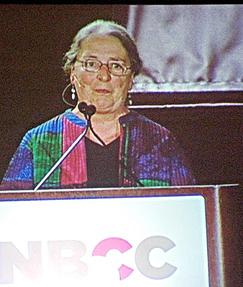Tributes
Many women have advocated for an end to breast cancer. Tributes follow for officers and board members of Michigan Breast Cancer Coalition who lost their fight against breast cancer. We are touched, moved, and thankful for their dedication, courage, and contributions.
Ella Ruth Smith Bowens
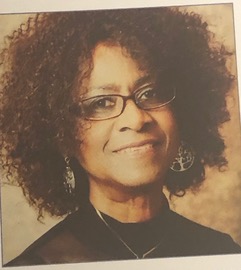 October 31st 1944- October 18th, 2018
October 31st 1944- October 18th, 2018
Lori Baran
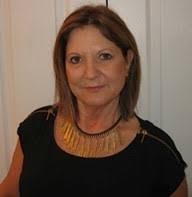 We lost one of our advocates and members on November 11th, 2018. Lori Baran, 62, was diagnosed with breast cancer in 2008 and learned of her metastatic diagnosis two years later. She was full of energy and very motivated in her desire for breast cancer advocacy. After Lori’s breast cancer experience, she wrote a book titled After Cancer by Lori to share her experiences using alternative methods to help treat her cancer and about never giving up.
We lost one of our advocates and members on November 11th, 2018. Lori Baran, 62, was diagnosed with breast cancer in 2008 and learned of her metastatic diagnosis two years later. She was full of energy and very motivated in her desire for breast cancer advocacy. After Lori’s breast cancer experience, she wrote a book titled After Cancer by Lori to share her experiences using alternative methods to help treat her cancer and about never giving up.
In addition to membership in the National Breast Cancer Coalition and the Michigan Breast Cancer Coalition, Lori was active in many other breast cancer organizations. She was on the University of Michigan Breast Cancer Advocacy Advisory Committee, ASCO, The Angel Pillow Project, ABCD,  Advocates in Science (Komen), PCORI SIO, and a Research Advocate for the DOD. She was an NBCC Project Lead graduate and participated in the Leadership Summit and Lobby Day. Lori attended SABCS as an Alamo Breast Cancer Foundation scholarship recipient. She thrived on increasing her education about breast cancer and advocacy.
Advocates in Science (Komen), PCORI SIO, and a Research Advocate for the DOD. She was an NBCC Project Lead graduate and participated in the Leadership Summit and Lobby Day. Lori attended SABCS as an Alamo Breast Cancer Foundation scholarship recipient. She thrived on increasing her education about breast cancer and advocacy.
Her involvement in her home community was evident by the huge attendance at her memorial service. Lori is survived by husband Mark, stepson, daughter-in-law and a precious new granddaughter whom she was ecstatic to hold. Lori also said that learning to dance was on her bucket list. She checked that off in 2015 when she danced on stage at Dancing With the Survivors to raise money for the Pink Fund. According to Lori, “choose life, get mad, get strong, get educated, seek alternative treatments, make your own decisions, ask questions and get healthy”. Lori will be missed, but the knowledge that her strength and determination has helped so many others will keep her memory alive.
Kathleen Livingston
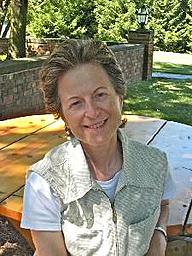 Kathleen was a passionate, charismatic and dynamic force in breast cancer advocacy. She co-founded Michigan Breast Cancer Coalition in 2007, and she believed it was her most significant achievement when she served as its President. She also represented the Inflammatory Breast Cancer Research Foundation on the Board of Directors of the National Breast Cancer Coalition for several years. She was also active on the University of Michigan Breast Cancer Advocate Advisory Committee and was a trained research advocate serving as a consumer reviewer for many research grant funding organizations.
Kathleen was a passionate, charismatic and dynamic force in breast cancer advocacy. She co-founded Michigan Breast Cancer Coalition in 2007, and she believed it was her most significant achievement when she served as its President. She also represented the Inflammatory Breast Cancer Research Foundation on the Board of Directors of the National Breast Cancer Coalition for several years. She was also active on the University of Michigan Breast Cancer Advocate Advisory Committee and was a trained research advocate serving as a consumer reviewer for many research grant funding organizations.
Kathleen fought metastatic inflammatory breast cancer for over 13 years, and participated in numerous clinical trials. Although petite in stature, she exemplified great strength and courage, managing her disease with such grace and dignity.
Kathleen enjoyed many other activities, such as tennis, golf and skiing with friends and family.
Educating others about the importance of breast cancer research was dear to her heart. Each year she went to Washington with other advocates from Michigan to visit lawmakers and speak about important breast cancer issues.
A memorial fund (http://act.breastcancerdeadline2020.org/site/TR?pg=fund&fr_id=1042&pxfid=1390) has been established in Kathleen’s honor through NBCC to continue her work in Michigan bringing public awareness and education to important breast cancer issues, and to support advocacy education and involvement. The fund is a tribute to Kathleen’s heart, mission and legacy.
Sandy Mae Bonhomme Snedecor
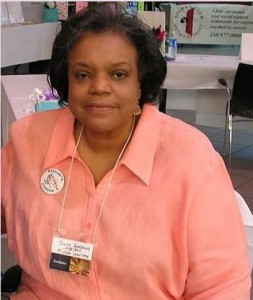 Sandy Snedecor, breast cancer advocate and founding Secretary, Board of Directors of Michigan Breast Cancer Coalition, died February 7, 2014.
Sandy Snedecor, breast cancer advocate and founding Secretary, Board of Directors of Michigan Breast Cancer Coalition, died February 7, 2014.
Sandy was born August 13, 1947 in Lafayette, LA to Cesaire and Esther Bonhomme, Jr. She was the middle child of the three surviving girls. Sandy attended Notre Dame Catholic School and Adam Carlson High School in St. Martinville, LA. Upon graduation, Sandy earned a scholarship to attend Southern University to study Physics. While there, she excelled academically and joined Alpha Kappa Alpha, Sorority, Inc.
After graduation in 1969, she married Dan V. Snedecor, Jr. and moved to Ann Arbor, MI. In 1974, she had her only child Sonya Jacinta. Sandy earned her Master’s Degree at Eastern Michigan University and worked as a Data Analyst/Manager at University of Michigan for 42 years until 2011. There, she helped many students with their own studies through tutoring and statistical consulting.
In addition to being very devoted to her family, Sandy was an active member of Delta Psi Omega chapter of AKA, Inc. and a charter member of the Ann Arbor chapter of Jack and Jill of America, Inc. In 2007, Sandy became the first Secretary of Michigan Breast Cancer Coalition, and lobbied members of Congress for breast cancer research funding and quality health care for all. Sandy was also very passionate about politics and volunteered for the Ann Arbor Obama Campaign Committee and the Michigan Democratic Party. Sandy’s devotion to her friends was indisputable. Her “Book Club”, her sorority sisters, and her “partners in crime”, Helen and Pat, were her core support system, for which she was eternally grateful.
In 2009, Sandy embarked on a new adventure: the 5K walk. She walked in Washington, DC; Ann Arbor, MI, Detroit, MI; Charlotte, NC and encouraged and inspired several of her friends and family to join her.
Deborah Roxburgh Scott
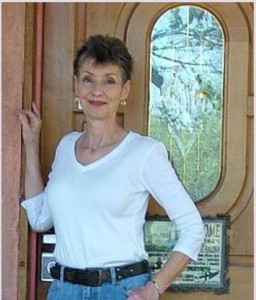 Deb Scott, Michigan breast cancer advocate and member of the National Breast Cancer Coalition, died June 14, 2014.
Deb Scott, Michigan breast cancer advocate and member of the National Breast Cancer Coalition, died June 14, 2014.
Deborah Roxburgh Scott was diagnosed with breast cancer in 1992. She began her breast cancer activism in 1995 when she attended her first of many National Breast Cancer Coalition (NBCC) Advocacy Training Conferences. The following year, she completed Project LEAD®, and became even more convinced that advocacy was her true volunteer calling. Deb applied to and participated in the first NBCC public policy leadership training program—Team Leader Training—and when she returned to Michigan, she established the Michigan Breast Cancer Advocacy Network to facilitate grassroots advocate efforts across the state working to forward the public policy agenda. In 2000, Deb became NBCC’s Michigan Volunteer Field Coordinator and annually devoted significant time working to gain support for NBCC’s priorities from the Michigan congressional delegation. She continued to serve in that capacity until she resigned in 2007 to relocate to New Mexico.
Maria Wetzel
Maria Wetzel, breast cancer advocate and member of Michigan Breast Cancer Coalition, died of breast cancer on May 27, 2013.
Maria’s deep understanding of the science and medical aspects of the disease made her a highly regarded advocate for women with breast cancer. As a knowledgeable fellow-patient, she offered valuable perspective and advice, first in the online communities of the Breast Cancer Mailing List and later, after her diagnosis with metastatic breast cancer, on BCMets.org, to over 1,500 people living with advanced cancer. She was able to draw upon her background as a Clinical Laboratory Scientist to translate emerging research into lay language for other patients, a critical help for informed decision-making.
As a research advocate, she reviewed grant proposals and participated in programmatic review for the Department of Defense Breast Cancer Research Program. She was a member of the Advisory Council of the California Breast Cancer Research Program, where she also did programmatic review. Maria served on the Data Safety Monitoring Boards of important clinical trials, including the innovative I-SPY2 study, and she assisted with the preparation of research grant proposals with National Cancer Institute scientists, with whom she also co-authored review articles.
In an article she wrote, Maria described herself as a “reluctant advocate” because of the impact that breast cancer has had on her family. “Every time I would even think about retreating from my advocacy work,” she said, “Something else would happen to forcefully remind me that we’re far from having the answers we need. I would love to live my life with few thoughts of cancer. This is not how I intended for it to turn out. It has become even more vital to me to advocate for better research, to change the conversation about what is done and how it is done.”
Maria spoke at National Breast Cancer Coalition training conferences, and was a much valued mentor at the NBCC’s science training program for advocates, Project LEAD, preparing the next generation of advocates to make a difference. Annette Bar-Cohen, Director of NBCC’s Center for Advocacy Training, says they thought of Maria “when a tough advocate assignment was being discussed, when a controversial response was called for, when a representative was needed to sit on an important committee,” adding that Maria “was admired and loved for her incisive mind, her articulate and critical thinking and her caring soul.”
Laura Nikolaides wrote:
Everybody had something to say about Angelina Jolie during May. You couldn’t open a newspaper or magazine, or read a blog without hearing an opinion about her risk for breast cancer and her individual decision. This dialogue was probably the biggest breast cancer conversation we have had as a nation so far. Everybody had an opinion.
Me? I couldn’t muster much interest. I kept thinking about Maria Wetzel. Her story wasn’t making the NY Times or CNN. While Angelina was announcing to the world her tough decision, Maria was making the decision to enter Hospice care.
You didn’t hear about it in the news, but Maria’s story is also about courage, about advocacy and compassion, about empowering others, and about working to make the world a better place. Maria is the real deal, an advocate for those who would come after her. She is one-of-a-kind in intellect, spirit and heart. But she is not a celebrity. And sadly, her breast cancer story is not unique, but typical. Run of the mill. It is relevant to more of us, but unfortunately, will go mostly unheard.
Before 1996, Maria never spent any time thinking about cancer. She lived in northern California, enjoying the outdoors, and life with her husband and 14 year old son. She worked as a Clinical Laboratory Scientist, looking for pathogens in other people’s blood samples. But after the day in 1996 when she was diagnosed with Stage II breast cancer, she never spent a day without some thoughts about cancer. She read, and connected online, every day, learning as much as she could; first for herself, for treatment decisions, or to lessen side effects, but gradually learning for others. She began sharing information and research findings, doing peer support work in her community for those newly diagnosed, and translating research findings into lay language for those less familiar with science jargon.
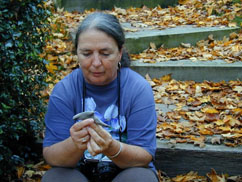 Though she had a good science background, she wanted further training and took NBCC’s Project LEAD, Clinical Trials LEAD, as well as the Quality Care LEAD. She began attending research symposia. Over time, she became frustrated with the “breakthroughs” that never ended up doing much for patients. She began participating in peer review of breast cancer research proposals, looking to award funding to the research that would provide more than incremental benefit, and was invited to serve as an ad hoc reviewer for the Integration Panel of the DOD Breast Cancer Research Program. She developed into a passionate advocate for ending breast cancer, and she knew this was going to require major change in the breast cancer world.
Though she had a good science background, she wanted further training and took NBCC’s Project LEAD, Clinical Trials LEAD, as well as the Quality Care LEAD. She began attending research symposia. Over time, she became frustrated with the “breakthroughs” that never ended up doing much for patients. She began participating in peer review of breast cancer research proposals, looking to award funding to the research that would provide more than incremental benefit, and was invited to serve as an ad hoc reviewer for the Integration Panel of the DOD Breast Cancer Research Program. She developed into a passionate advocate for ending breast cancer, and she knew this was going to require major change in the breast cancer world.
Maria always felt she wasn’t finished with the disease after that first diagnosis in 1996, but after nine years she let herself think maybe, just maybe she’d be one of the lucky ones. But in 2005 she was diagnosed with a chest wall recurrence, and in 2011, with metastasis to her lungs and liver.
Though she was living with metastatic disease, she continued her advocacy, working to help others and to see an end to breast cancer for future generations. She called herself the reluctant advocate, but she couldn’t stop; friends were dying, two of her sisters were diagnosed. She wrote in a blog, “Every time I would even think about retreating from my advocacy work, something else would happen to forcefully remind me that we’re far from having the answers we need. I would love to live my life with few thoughts of cancer. This is not how I intended for it to turn out. It has become even more vital to me to advocate for better research, to change the conversation about what is done and how it is done.”
Maria Wetzel died yesterday, surrounded by her family. It’s a tremendous loss for breast cancer advocacy, but also for so many of us personally. Maria has been a part of my experience as an advocate from the beginning, since I joined this world after my own diagnosis six years ago. We’ve worked on advocacy projects together, meeting at research symposia and panel reviews, and emailing back and forth about the latest study. Once I was working at NBCC, I could always count on Maria to help with the hard stuff, but also to be the advocate who would ask me the hard questions. After which, she would always directly follow up with a friendly question about one of my kids or a comment about the weather or birds in Michigan. I’m glad she asked the hard questions of me and of all of us, and I will continue to ask the hard questions of myself and others to honor her.
Angelina Jolie had a rare genetic mutation that put her at risk for breast cancer. Over 99% of women won’t have that mutation and won’t be faced with the difficult choices Ms. Jolie faced. Unfortunately, Maria’s story is much more common. One in eight women will develop breast cancer over their lifetime, and the majority of those women will have the type of breast cancer Maria did. This breast cancer is hormone responsive, and can lay dormant for many years before reappearing and spreading. Most people don’t understand, or don’t want to understand, this fact about breast cancer. Even scientists know very little about why or how the cancer reappears, or most importantly how to prevent it.
Maria was relentless in pushing for meaningful answers. To honor Maria, let’s continue asking the hard questions, of ourselves and of everyone in the breast cancer world, changing the conversation and breast cancer dialogue wherever we can. Maybe there won’t be a national dialogue about Maria Wetzel and her decisions, but we can do our best to continue the work together, no matter how reluctantly, no matter what the challenges we face individually, to truly make a difference in the mission to end breast cancer. Maria would love to see nothing less from us.
Laura Nikolaides’ website is: http://breastcanceradvocate.wordpress.com/
Maria Wetzel, autobiography, March 27, 2012 – The Saga of a Reluctant Advocate
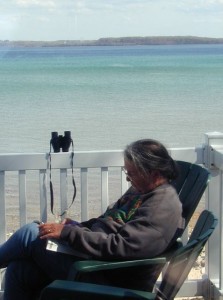 In 1996 I was living in a small bit of paradise on the northern California coast with my husband and our 14-year-old son. Besides my sometimes challenging job as a Clinical Laboratory Scientist, looking at blood slides, identifying pathogens in various specimens from sick people, I was also quite involved in trying to ensure that our son got the very best possible education, one that stretched his inquisitive mind. Cancer was a scary word that was not commonly in my thoughts, and I had very little understanding of what is was, what it meant. Since my diagnosis, however, not a day has gone by that the word hasn’t been an integral part of my life.
In 1996 I was living in a small bit of paradise on the northern California coast with my husband and our 14-year-old son. Besides my sometimes challenging job as a Clinical Laboratory Scientist, looking at blood slides, identifying pathogens in various specimens from sick people, I was also quite involved in trying to ensure that our son got the very best possible education, one that stretched his inquisitive mind. Cancer was a scary word that was not commonly in my thoughts, and I had very little understanding of what is was, what it meant. Since my diagnosis, however, not a day has gone by that the word hasn’t been an integral part of my life.
Fortunately for me, I found the earliest online breast cancer group, the bclist. It was one of very few cancer support services on the Internet at that time, but it was already a vibrant community of almost 1,000 emailers. There were helpful doctors, a few nurses, and a whole lot of people from around the world who shared personal stories of their own diagnoses and treatments. We were all trying to learn everything we could about the best possible options, given our various circumstances, how to cope with side effects from treatments, how to live normally after we were finished. There was a large group who was living with metastatic disease, which meant that every year we read about quite a few deaths. I still belong to that group.
I soon became involved with the local cancer resource center. Over the years, I did a lot of peer support work with those newly diagnosed, plus eventually functioned as a research advocate and translated findings into lay language for those less familiar with science jargon.
Because of friendships from the online list, I started going to the National Breast Cancer Coalition’s (NBCC’s) Advocate Training Conferences held each spring, which culminate in lobbying our Congressional members for each year’s NBCC priorities, the main one of which is usually ensuring that the Department of Defense (DoD) Breast Cancer Research Program (BCRP) is funded. It was through NBCC’s efforts that this program came into being in 1992. One of the non-negotiable items has always been the involvement of trained advocates at every step of the process.
Although I had good science background, I knew I needed something more specific, so I went through the NBCC’s intensive training course, Project LEAD, in 2003. Since then I have also graduated from the Clinical Trials LEAD, as well as the Quality Care LEAD. I have attended all the San Antonio Breast Cancer Research Symposia since 2003 and the American Society of Clinical Oncology and American Association for Cancer Research conventions for several years.
While still living in California, I was a member of the California Breast Cancer Research Program’s Advisory Council for 3 years, where I did programmatic review of research proposals. After moving away from that state, I participated in several of their peer review panels.
I was very honored to be asked to become an ad hoc reviewer for the Integration Panel of the DoD BCRP. Although I felt comfortable with much more of the research jargon and, specifically, that of breast cancer, I admit to feeling quite outside my comfort zone when I entered that first panel session. Here were the experts! Here were some very well-known and respected researchers! But I also realized that I was the expert when it came to living with a diagnosis, knowing what it was like to live with the worry of recurrence, and the sobering reality that about 40,000 lives were lost in the United States alone each year due to this disease.
I was confident that this program expected the funded research to truly make a difference in the mission to end breast cancer. We (and I soon felt I was part of the “we”) had to be critical thinkers, ask continually if this particular proposal was simply more of the same and incremental, or if it held the possibility of real progress. I found it challenging to say the least. It is so rewarding to be able to sit with researchers, to know they are listening to what I have to say, not as a scientist but one who is living with the disease.
Why “the reluctant advocate”? Unfortunately, I am now living with metastatic disease. In addition, two of my five sisters have been diagnosed. And I can’t begin to tell you how many friends have died. Every time I would even think about retreating from my advocacy work, something else would happen to forcefully remind me that we’re far from having the answers we need. I would love to live my life with few thoughts of cancer. This is not how I intended for it to turn out. It has become even more vital to me to advocate for better research, to change the conversation about what is done and how it is done. My personal goal is to live long enough to see real breakthroughs toward eradicating breast cancer.
